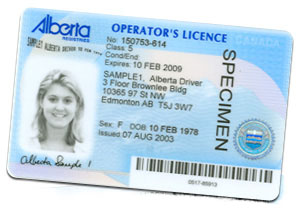The Alberta Court of Appeal has ruled the province cannot enforce payment of debt by refusing to issue driving licences to discharged bankrupt drivers.

In
Moloney v Alberta (Administrator, Motor Vehicle Accident Claims Act), the Alberta government refused to issue a driver’s licence to John Moloney because he has unpaid judgment for personal injury damages against him. More than 20 years ago, the province paid some $195,000 to a victim of a car accident Moloney caused.
Withholding licences is one of the ways Alberta, like other provinces, enforces debt payment.
But when the debtor is a discharged bankrupt, the Court of Appeal found yesterday that the province cannot refuse to issue a licence because doing so offends the “fresh start” principle of federal bankruptcy laws.
The Moloney decision mirrors
one from the Ontario Court of Appeal recently when it found the province of Ontario couldn’t withhold licences from bankrupt drivers who have outstanding Hwy. 407 tolls and
another from last April from the Ontario Superior Court.
“It is quite apparent that the respondent will never be able to pay off any meaningful portion of this judgment,” Alberta appeal Justice Frans Slatter wrote on the court’s behalf.
“One can criticize the respondent for getting himself into this situation, but the principle behind the bankruptcy laws is that people’s mistakes should not weigh them down forever. If they are given a fresh start, most of them can thereafter become productive, responsible, tax-paying members of society.”
The province argued that the Bankruptcy and Insolvency Act does not “extinguish” Moloney’s debt. It also said driving is a privilege and not a property protected by the bankruptcy act.
But for the court, “it is no answer to say that the debt is not ‘extinguished’ after the discharge of the bankrupt.”
“Whatever may be the status of a debt after discharge, it does not extend so far as to permit the creditor to exact payments from the discharged bankrupt outside the bankruptcy regime,” Slatter said.
In addition, Moloney, a truck driver, relies on his driving licence for a living so driving is more than a privilege for him, the court found.
“My client is happy,” says Jeremy Newton, who represented Moloney. “This decision is important for him.” The court’s decision was “affirmative” and “thorough,” Newton adds.

 In Moloney v Alberta (Administrator, Motor Vehicle Accident Claims Act), the Alberta government refused to issue a driver’s licence to John Moloney because he has unpaid judgment for personal injury damages against him. More than 20 years ago, the province paid some $195,000 to a victim of a car accident Moloney caused.
In Moloney v Alberta (Administrator, Motor Vehicle Accident Claims Act), the Alberta government refused to issue a driver’s licence to John Moloney because he has unpaid judgment for personal injury damages against him. More than 20 years ago, the province paid some $195,000 to a victim of a car accident Moloney caused.